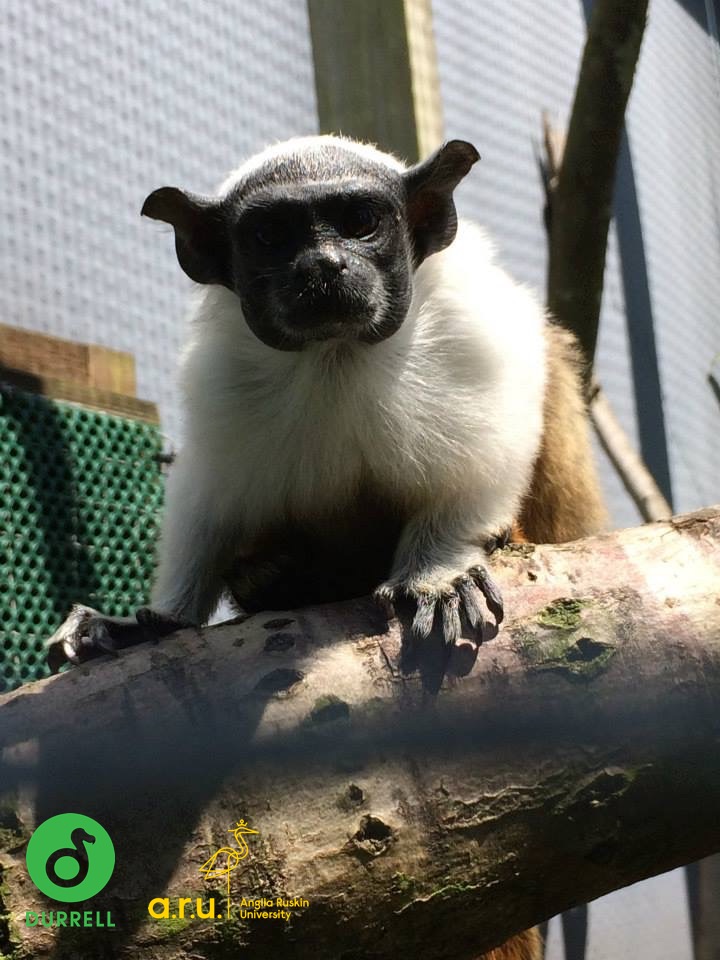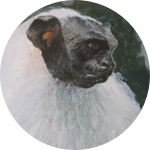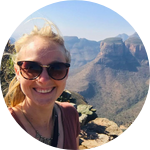About This Project
The pied tamarin is a very sensitive and critically endangered primate species. With only a small population left in the wild, maintaining a healthy captive population is a vital conservation strategy. However, in captivity pied tamarins tend to struggle more than other species of tamarin, and this can lead to health problems.
Why is this? My study will focus on the different noises they experience in captive environments and investigate if and how sounds affect them.
Ask the Scientists
Join The DiscussionWhat is the context of this research?
To help any animal cope with captive conditions it is of the highest priority to understand different stressors and their effect on the animal. A start is usually made by trying to recreate the wild settings including enclosure design, diet, etc. However, even with the best efforts the acoustic environment for captive animals will always differ to that of wild ones and therefore is an important factor to consider.
In fact, sound levels at zoos rarely represent those of the natural habitat of animals - often representing a much louder and more irregular environment defined by anthropogenic sounds. For pied tamarins, a small primate that is easily aroused and threatened by many natural predators, a noisy environment most likely represents a potential source of stress.
What is the significance of this project?
The pied tamarin faces many challenges, not only in captivity but also in the wild. It is listed as critically endangered (IUCN) and can only be found in a small, locally restricted area in and around the vicinity of Manaus, Brazil. With such a fragile and declining population left in the wild, it s even more important to conserve this species in captivity.
However, the captive management of the pied tamarin is more difficult than for other species. Their high tendency for an activated stress response seems to cause several health problems, reduced wellbeing, and reduced breeding success. Understanding noise as a potential stressor will help to improve the pied tamarin's captive stress management, welfare and conservation.
What are the goals of the project?
The goal of this study is to investigate pied tamarins’ responses to different sounds.
This will be done in a playback experiment in which different sounds (rainforest, visitor voices, construction noises, etc.) will be played to the pied tamarins. Before and after each playback, saliva will be collected form the trained animals to later analyse for cortisol, a hormone that represents the physiological stress levels. In addition, behavioral data will be collected during the playbacks. Together this allows to evaluate the pied tamarins (stress) response to the different sounds and help understand what they perceived as noise.
For more detailed information please see methods.
Budget
Your contributions will allow me to complete this project and will cover the costs related to cortisol analysis. The acoustic equipment I need is already available within my university.
Cortisol analysis will cost about $6 per sample. I expect to collect and analyse roughly 400 saliva samples during the playback experiments.
I am stretching my budget by $ 1000 which would be the cost of more saliva cortisol analysis. This would allow me to do this study with more animals and more repetition, which would validate my results and strengthen my study.
Endorsed by
 Project Timeline
Project Timeline
This project is part of my doctorate degree at Anglia Ruskin University (UK) started in September 2019. Currently I am collecting data for a different part of this study and training animals for saliva collection for the playback experiments, which are expected to start in September.
I am fully committed to this project and, with your help, I will be able to make a significant contribution in the conservation efforts for the pied tamarins in the near future.
Aug 15, 2020
Project Launched
Aug 31, 2020
have at least 15 individuals trained for saliva collection
Sep 16, 2020
record different sounds for the playback experiment
Sep 30, 2020
finalize preparation for the playbacks
Oct 11, 2020
start playback experiments
Meet the Team
Team Bio
Research will take place in collaboration with Durrell Wildlife Conservation Trust (DWCT). They are the leading experts in captive pied tamarin management (including captivity and wild research).
University supervision is provided by Dr. Jacob Dunn and Dr. Claudia Wascher. In addition, Dr. Eluned Price (Research Manager, DWCT) and Dom Wormell (head of the mammal department) will present on site guidance.
Fiene Steinbrecher
I am currently a PhD student at Anglia Ruskin University in Cambridge (UK) looking at the effects of the acoustic environment on captive pied tamarins. I previously received a BSc in Biology from Mahidol University International Collage (Thailand) and a MSc in Animal Behaviour and Conservation from Anglia Ruskin University (UK).
Additional Information

With your support, this study will make a big difference to the pied tamarins. The information gained from this study may not only help captive individuals, but may also help wild conservation management, as anthropogenic noise is a big part of urbanization and human encroachment - threats that are very persistent for wild pied tamarins. Thus, this study will not only aid the captive pied tamarins, but also wild ones and ultimately help to ensure the pied tamarin's survival.
Project Backers
- 75Backers
- 131%Funded
- $4,464Total Donations
- $59.52Average Donation




